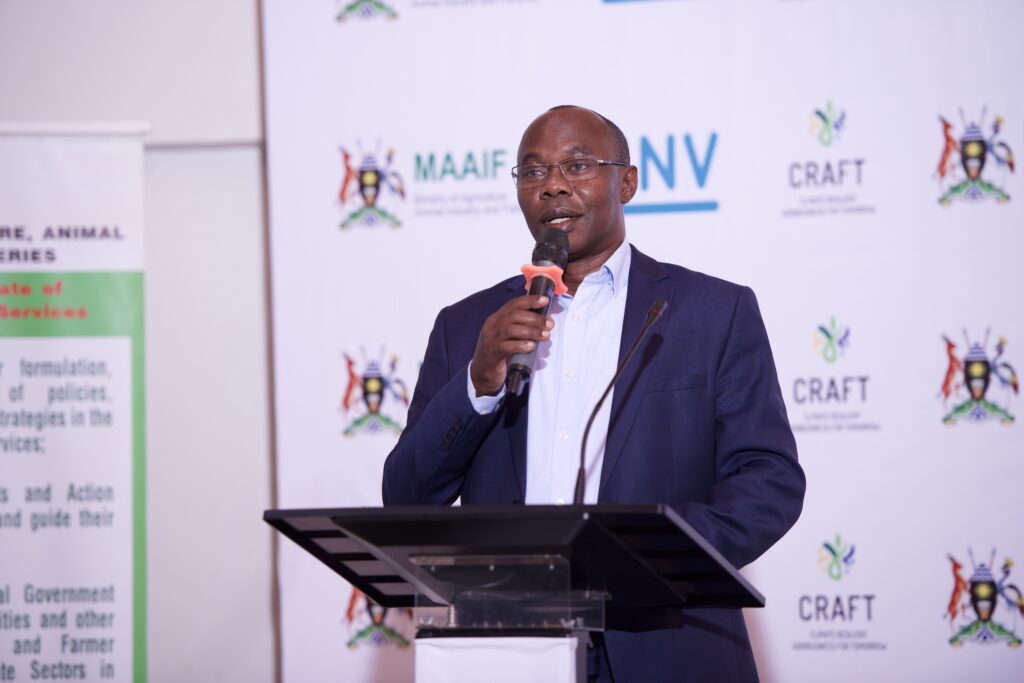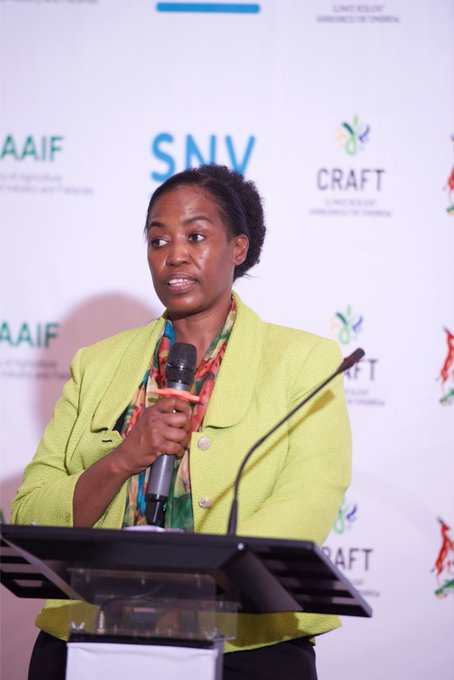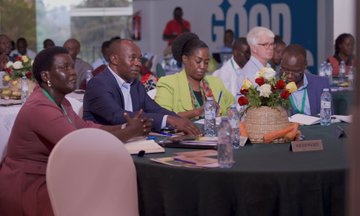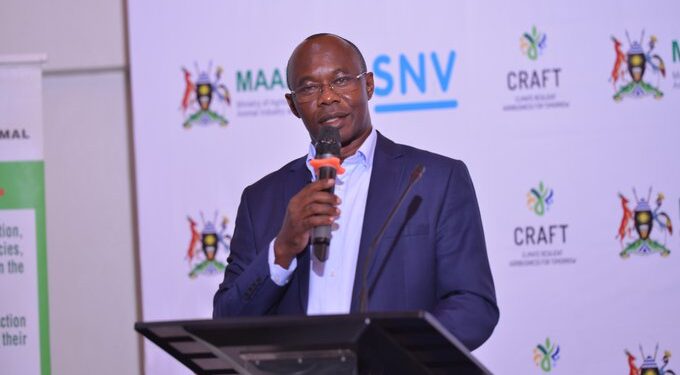SNV, a Netherlands Development Organisation, has established the Uganda Climate Smart Agriculture Multistakeholder Platform (UG-CSA MSP) through its Climate Resilient Agribusiness for Tomorrow (CRAFT) Project in collaboration with the Government of Uganda under the Ministry of Agriculture, Animal Industry, and Fisheries (MAAIF).
The platform aims to facilitate discussions among various stakeholders in the agriculture sector to address issues related to climate change.
According to Dr Henry Nakalet Opolot, Commissioner of Agriculture Extension Services and Skills Management, Ministry of Agriculture, Animal Industry and Fisheries, the government is developing a Climate Smart Agricultural Transformation (UCSAT) project to respond to climate change.
He added that they cannot do it alone, hence requiring partners to work with them.

He highlighted the importance of synergetic partnerships in addressing the effects of climate change on agriculture.
“Through the anticipated Climate Smart Agriculture Project, we can work together because government cannot do it alone.”
“As development partners, we are profoundly delighted with the opportunity to contribute to efforts geared towards improving absorptive capacity, adaptation capacities, and transformative capacities to climate change effects,” said Phomolo Maphosa, the Country Director of SNV in Uganda.

Phomolo Maphosa also mentioned that SNV is eager to support government efforts, especially through the anticipated World Bank-funded Uganda Climate Smart Agricultural Transformation (UCSAT) Project under MAAIF, given its experience and expertise in dairy/livestock.
“We are also aware of the government’s efforts to update the National Development Plan. As development partners, we are available to contribute, especially based on our extensive implementation experience in different parts of the world. The MSP provides a perfect platform for development partners in the CSA space to contribute to such discussions. We therefore welcome this initiative,” added Phomolo.
CRAFT Project Manager, Bashir Kasekende, said: “As a development organisation, we are happy to have this engagement, and we pledge to integrate all the feedback to ensure that the platform is up and functional.”

According to the World Bank 2022 report, agriculture accounts for 24% of Uganda’s Gross Domestic Product (GDP) and employs 73% of its 18.2 million workforce.
However, agricultural yields only range from 20% to 30% of their potential. Production challenges, including climate change, worsen the situation.
The lack of coordinated efforts has resulted in inefficiencies and reduced the effectiveness of substantial resource investments.
The UG-CSA MSP is designed to unify all CSA stakeholders to collaboratively address climate change issues in agriculture, ensure collaboration among CSA players, enhance communication, knowledge sharing, and learning, and provide a space for creativity and innovation.
The platform aims to: foster collaboration among state and non-state CSA stakeholders to achieve the agro-industrialisation agenda, promote coordination, resource mobilisation, and alignment of various CSA interventions, improve knowledge management, awareness, and dissemination to adopt CSA technologies and practices, streamline CSA intervention reporting processes in the agriculture sector and strengthen the enabling environment for CSA to drive agricultural sector transformation.











